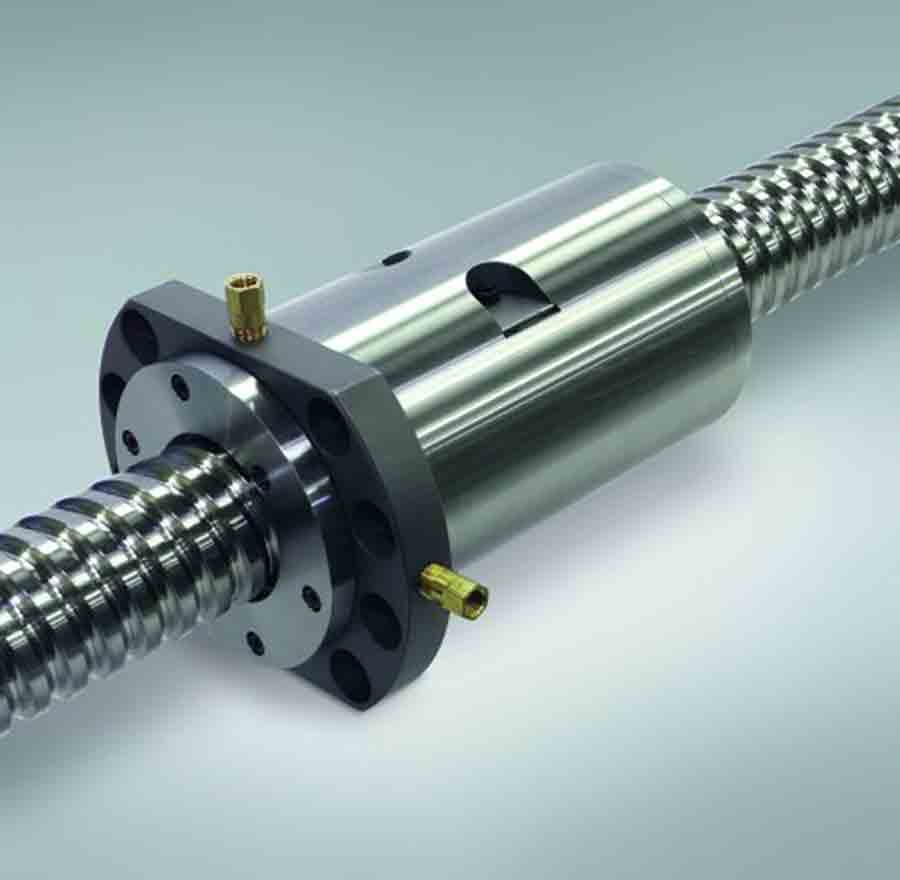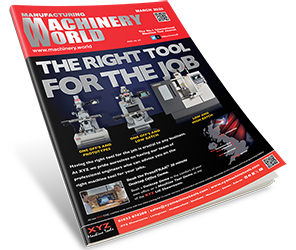NSK ball screws with nut cooling are setting new standards in the precision of machine tools with mechanical drive components. Confirmation comes not only from NSK’s own testing, but from machine tests conducted with CHIRON Group, a wellknown manufacturer of machining centers. NSK ball screws contribute to the outstanding surface quality of milled parts produced by CHIRON Group’s new CNC machining centers.
The machine tool industry uses ball screws to convert the rotary motion of an electric motor into linear motion. Very often, the positioning accuracy, as well as the travel speed and acceleration, have to endure extreme demands.
As a result of axial forces, acceleration and speed, the ball screw generates frictional heat. This heat can cause the length of the screw to increase (due to thermal expansion) and hence lead to very slight but often critical positioning inaccuracies that may impair machining quality.
To help avert this outcome, many machining centers are equipped with a length scale that measures the actual position of the tool, while for those that require higher positioning accuracy it is possible to use ball screws with hollow shafts. In the latter, coolant passes through the shaft to remove heat from the system. This method is quite costly however,
because rotating screws require a rotary union in addition to the hollow bore.
A new approach is to cool the nut, which means there is no need for an expensive hollow bore and rotary union as cooling takes place directly at the point where the heat is generated. Another key benefit is that the heat generated in the ball screw no longer dissipates directly in the machine. This thermal decoupling between the machine and ball screw is important because any heat can impair dimensional stability. The results now prove that by cooling the nut, it is possible to increase the surface quality of machined components.
NSK engineers designed the nut body so that the changes to the ball screw caused by cooling have no negative influence on its performance profile, as confirmed by endurance tests at NSK’s Technology Centre.
Many years of cooperation with CHIRON Group have also confirmed these results in practice. The use of NSK ball screws with cooled nuts means that machining centers of the CHIRON 16 and 22 Series operate with exceptionally high precision, which not only applies to ease of positioning, but to machining accuracy and surface quality. In two specific CHIRON Series, the ball screws are also equipped with NSK’s highly effective X1 seal, which protects the nut from contamination and retains lubricant within the nut for an extended period.
Looking ahead, NSK intends to pursue its collaboration with the CHIRON Group and thus continue optimising precisely targeted cooling technology for ball screws. This teamwork will enable developers to deepen their knowledge of ball screws and how they influence machine performance.







